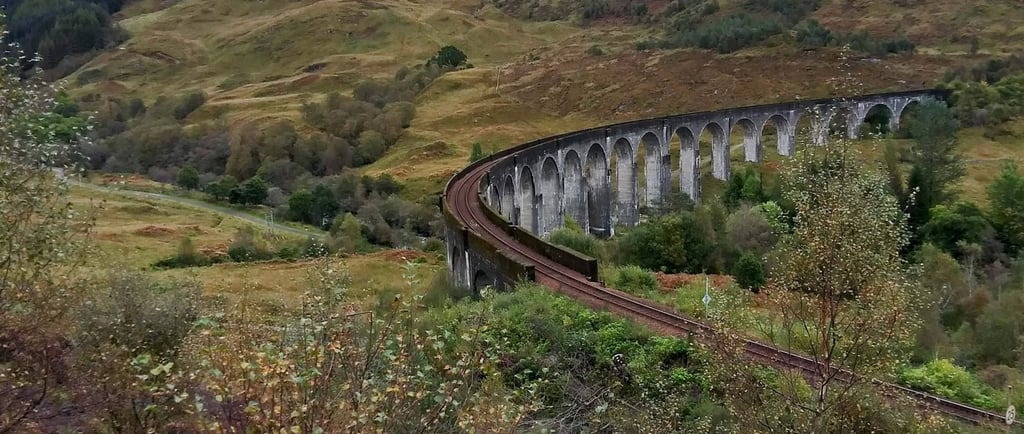The Modernity Bias
The only thing that never changes is that everything changes
HISTORYSOCIETYOBSERVATIONPHILOSOPHY
Heidi Hahe
3/20/20257 min read


Why does it seem like some people would like to freeze time? Why do we expect that life should be as it is right now, despite the very real fact that we, ourselves, are constantly changing in one way or another? The temperature range, the exact fauna and flora on the surface and in the oceans, the topography–everything must remain the same as it is right now.
But why? We can see very clearly in the fossil record that over the course of this planet’s long, long history, all of these aspects of its existence have changed. We had an ice age, from which we are still recovering, and the glaciers completely reshaped the topography of the land in North America, for example. Both the climate and the landscape have altered drastically through the prodigious lifespan of Earth so far; so why do so many people seem to believe that the Earth should forever remain as it is now?
I call this desire the “Modernity Bias”; meaning that everything should be as it is in our modern time; it always has been and it always will be this way.
To me, this is the overblown equivalent of the parent that genuinely would–if they could–freeze their children in time and keep them as children forever. It’s not fair to those children in any way and the reality of the perpetual child (i.e. a child with developmental delays, for example) is actually rather difficult.
Children aren’t the only ones who should grow and change; every human should grow, ideally every day, at least in little ways, and as we grow, there are a multitude of paths that we can go down in life as we do.
There is an answer and part of it is the same answer as most of the questions that I pose nowadays; propaganda and indoctrination.
I get it, this is my conclusion to most societal problems that exist in western society, but this is because, unfortunately, it is the truth. Americans, and other countries of the west, are subjected to 13 years of government dictated “education”, where we learn a lot of “stuff” that most of us will ever need or use in life and we aren’t taught about the things that we will need. And that’s on purpose.
Although the concept of free, public education is as old in America as the country itself, at the turn of the twentieth century it had a distinct and, so far, lasting change that was piloted by none other than America’s first billionaire; John D. Rockefeller. Through the guise of philanthropy–a word that should be synonymous with corruption–and his General Education Board, which contributed $180 million USD to the government to gain massive control over curriculum and teacher training, Rockefeller essentially ceased control of the system itself.
Because adjusted for inflation, $180 million dollars in 1902 equates to approximately $20 billion dollars in 2025. That puts him, unsurprisingly, in the same club with the likes of Bill Gates. I wasn’t alive in 1902, and neither was the essential spreader of information–the internet–so it’s hard to know how the everyday American felt about the industrial tycoon contemporaneously, but I know how I feel about billionaires now.
The results of education as we do it now is to keep those billions of dollars in the pockets of the billionaires. The system remains the same because there are people who benefit from creating workers, as the system was designed to do by Rockefeller and Ford, et al., not actually educating the masses so that they may thrive. This is the beginning of the reinforcement of the idea that everything should be and has to be how it is now.
There is a saying that I grew up with that goes “the more things change, the more they stay the same” and I see this now as an observation on the consistency of the human collective in certain aspects. Whether you’re living in 1234 or 3412, if you’re a human on Earth, you will need shelter from the elements, a fuel source to have energy, rest, and community. No matter how differently the means to achieve those things may look in those different times, the needs remain the same.
But there are other fundamental aspects of humanity that also do not seem to change; disagreement over the correct way to go about things, those who fear change vs. those who fear stagnation, struggling to deal with fear and other heavy emotions that exist in this realm, not to mention the existence and interference of the ego. So perhaps this consistency can allow us to believe the other aspects of life should be equally consistent, no matter how much evidence exists to the contrary.
As with most things, this bias is multifaceted and complex. In the process of researching a completely different topic with AI (a new hobby of mine), I realized that there is an even more tangible answer to my question, aside from indoctrination, that keeps beneficial (to some) systems in place; science.
One of the primary hallmarks of modern science and scientific research is replicability and replicability relies on the assumption that things have always been as they are and always will be. If it isn't repeatable, then it cannot be scientifically proven. In which case, science is incredibly limited when it comes to explaining the experience of existence due to its dependency on consistency, while life is anything but. Life is built on transitory experience, at least for humans, and the planet itself thrives within a matrix of consistency and change.
I’m not necessarily criticizing science and scientific thought, especially with regard to physical science, where replicability makes sense; the mechanics of the Earth, like gravity for example, are consistent. Lift your pen into the air and open your hand and it will “fall”, every time. That’s gravity, that’s a law of physics. It’s quantifiable and reliable. But not everything in this realm can be or should be as consistent and quantifiable as physics. If that were that case, then nothing on this planet would have the capacity for change–evolution cannot exist without consistent change over time.
I very recently read an article that epitomizes the existence of this bias with the scientific community quite well. The article detailed the finding of stone tools in the rainforest in Cote D'Ivoire (Ivory Coast, Africa) that had been dated as being 150,000 years old. See, the scientific community had arbitrarily decided that it was simply too difficult for early, but anatomically modern humans, to survive in the conditions of the rainforest ecosystem and so they concluded, without any evidence, that they must not have. And they’d written this into books as though it were a fact.
The only thing I think that we can be certain of is that very few people born into modern, western civilization would have any hope of survival if they found themselves in the middle of a rainforest tomorrow. If we, as “highly advanced humans” couldn’t survive in the rainforest, then surely “primitive” humans couldn’t do what we can’t do. This is the Modernity Bias at work.
Realistically, our advancement is the very reason that we would have a very difficult time surviving. In our society, we have an incredible dependence upon convenience (I have another piece, called Well, Isn’t that convenient? which discusses this topic) and that reliance makes us much more vulnerable. Because of our sturdy, weather proof housing, we can live the same way all year round, with the same, controlled temperature, with a refrigerator full of the same foods, and wearing the same clothes.
But our ancestors didn’t have that luxury, for it is certainly a luxury. Without the crutch of technology, early humans had no choice but to work with nature instead of “overcoming” it like we think we have. Adaptation is a skill as much as it is the inspiration for evolution and having that skill would have allowed our ancestors to survive in ways that most humans today couldn’t even imagine.
Understanding that this bias exists can help us respect our ancient ancestors, but it should also give us compassion for our more recent ancestors. As the younger generations grow and begin to show us their new ideas about life, one observation that I have made is that they significantly have this Modernity Bias when it comes to the morality of figures from the recent past. There is a tendency toward placing the morals of today onto people who grew up in a different society, with different rules and expectations.
I think this tendency is dangerous. It’s easy to look back through history, the ultimate in “hindsight is 20/20”, and judge the people of that time, but if we weren’t present then, then our judgment is petty. Especially considering how one sided it is. They can’t look at you through their lens and judge your actions, which would seem very improper to their eyes and their morals. Morality and ethics are cultural, not necessarily innate, no matter how much we have been made to believe otherwise.
But this bias doesn’t just exist in terms of society and history, we can unknowingly use this against ourselves and our own lives. How often do we think of something in our past, along with the thought “I should have known better”? But the person that we were in the past didn’t have the information that we have in the present. I do this to myself still, thinking about how I judged people in my younger years and thinking that I should’ve known better, but I was raised to believe that there were certain ways of doing things (and of not doing things) and now I know better.
However, now that I know better, it doesn’t mean that I hold it against the “me” of the past who didn’t know better. I have learned and grown and changed as I’ve journeyed through the years and that is all that I can expect for myself or for anyone else. It then stands to reason that humanity, as a whole, is also learning and growing and changing. It’s just that bigger objects move more slowly from the perspective of smaller objects and humanity is a collective, 7 billion souls strong, it’s going to take a long time for sustainable change to happen.
Trust, though, that it is happening. No matter how much we try to force the world to remain as it is, however that may manifest, either through saving the rainforest or simply staying at a job we hate because it’s a steady paycheck, change is inevitable. But the important part is to realize that if we want things to change, they have to change. Change can be scary, but change is the way out. Change is the only way that we get from the life we don’t like to the life we want to have.
We might think that we are holding on to good things, but what if the thing we’re holding onto is the one thing that has to go in order for everything else to come in?
